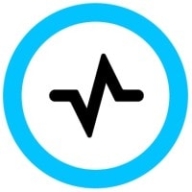

LogRhythm SIEM and Graylog Enterprise compete in the security information and event management category. LogRhythm seems to have the upper hand due to its advanced features and comprehensive customer support, despite higher costs.
Features: LogRhythm offers robust reporting and investigation capabilities bolstered by advanced intelligence engines. Its integration with various security tools is highly appreciated for its effectiveness. The ease of deployment and the rich web interface make it a versatile choice. Graylog Enterprise is recognized for its open-source model, allowing for straightforward search functionalities and seamless integration with external tools. The availability of a free version provides great flexibility for smaller organizations with limited budgets.
Room for Improvement: LogRhythm could enhance its file integrity monitoring and log management efficiency. Improving its reporting capabilities and integration with ticketing systems would also be beneficial. Users desire a more intuitive user interface to improve usability. For Graylog Enterprise, improvements are needed in alerting systems and documentation. Enhanced integration capabilities and more intuitive visualization options are crucial to elevate user experience.
Ease of Deployment and Customer Service: LogRhythm is praised for its solid support and quick response times, though experiences vary by support level. The deployment process is generally straightforward, but better integration options would enhance it. Graylog's community edition is easy to adopt, offering flexibility. Enterprise support requires investment for complex deployments, but a strong community offers aid. Both systems have commendable support, with LogRhythm's being notably comprehensive.
Pricing and ROI: LogRhythm is generally seen as more expensive, but its robust features appeal to medium and large enterprises, justifying the cost. Consideration for future scaling is recommended. Graylog Enterprise offers significant cost advantages, particularly for smaller organizations, with its open-source model. Free versions provide considerable value, despite potential infrastructure cost increases for large deployments. Both products offer long-term ROI, with LogRhythm's functionalities providing peace of mind and Graylog's affordable structure enhancing accessibility.
| Product | Market Share (%) |
|---|---|
| LogRhythm SIEM | 2.2% |
| Graylog Enterprise | 5.8% |
| Other | 92.0% |


| Company Size | Count |
|---|---|
| Small Business | 8 |
| Midsize Enterprise | 4 |
| Large Enterprise | 7 |
| Company Size | Count |
|---|---|
| Small Business | 38 |
| Midsize Enterprise | 38 |
| Large Enterprise | 83 |
Graylog Enterprise, recognized for log collection, real-time search, and enriched data handling, offers an open-source framework that integrates seamlessly with Elasticsearch. Its user-centric interface streamlines data correlation and log aggregation, supporting both backend services and comprehensive monitoring needs.
Graylog Enterprise stands out for its stability and powerful log management capabilities, facilitating efficient log aggregation, real-time updates, and data analytics. Users benefit from its plugin-based alerting, user-friendly interface, and support for microservices, including Docker integration. The ability to search in detail, flexible API integration, and data enrichment features are highly valued. Challenges include collector application issues, desired visualization enhancements, and authentication integration improvements. Users seek advancements in UI customization, backup functions, and easier rule creation.
What are Graylog Enterprise's most important features?In industrial use, Graylog Enterprise is crucial for audit trailing in financial sectors, facilitating security event identification and error monitoring. Backend teams leverage real-time analytics for swift issue resolution, while developers appreciate the comprehensive log visualization enabled by Docker integration for microservice management.
LogRhythm SIEM Platform is an award-winning platform in security analytics. With more than 4,000 customers globally, LogRhythm SIEM is an integrated platform that helps security operations teams protect critical infrastructure and information from emerging cyberthreats. Ultimately, LogRhythm SIEM is an integrated set of modules that contribute to the security team’s fundamental mission: rapid threat monitoring, threat detection, threat investigation, and threat neutralization. LogRhythm SIEM is for organizations that require an on-premises solution and offers:
● Streamlined workflow
● Secure data access
● Real-time visibility
● A unified user experience
● Management customization
Security information and event management (SIEM) solutions have been evolving for over a decade; their core functionality still acts as the most effective foundation for any organization’s technology stack. A SIEM solution enables an organization to centrally collect data across its entire network environment to gain real-time visibility into activity that may pose a risk to the organization. SIEM technology addresses threats before they become significant financial risks while simultaneously helping better manage an organization’s assets.
LogRhythm SIEM has many key features and capabilities, including:
● High-Performance Log Management: LogRhythm SIEM offers structured and unstructured search capabilities which allows users to swiftly search across an organization’s vast data to easily find answers, identify IT and security issues, and troubleshoot issues. Users can efficiently process and index terabytes of log data daily.
● Network and Endpoint Monitoring: Forensic sensors allow users to gain deep visibility into endpoint and network activity. Users can see behavioral anomalies and better respond to incidents.
● SmartResponse™ Automation: LogRhythm SIEM allows users to centrally execute pre-staged actions that automate incident investigatory tasks and responses.
● Automated Machine Analytics: LogRhythm SIEM's AI Engine continuously analyzes all collected security incidents and forensic data. Security teams are delivered precise, real-time intelligence about risk-prioritized threats.
● Case and Security Incident Management: LogRhythm SIEM offers an integrated workflow so that threats don’t slip through the cracks. Collaboration tools help centrally manage and track investigations.
● User and entity behavior analytics (UEBA): Embedded deterministic UEBA monitoring helps protect against insider threats.
● Security orchestration, automation, and response (SOAR): LogRhythm SIEM includes our embedded SOAR solution to increase efficiency and higher-quality incident response with low mean time to response (MTTR).
Benefits to Using LogRhythm SIEM
● The platform offers great value to security and IT operations. Users have the ability to map their security and IT operations to existing frameworks such as NIST and MITRE ATT&CK.
● The platform offers broad integration across security and IT vendors: Users benefit from support for integration with hundreds of security and IT solutions. In turn, this further extends SIEM capabilities and data collection.
● The platform provides compliance adherence, enforcement, and reporting: The prebuilt compliance modules automatically detect violations as they occur and remove the burden of manually reviewing audit logs.
Reviews from Real Users
LogRhythm SIEM stands out among its competitors for a number of reasons. Two major ones are its ability to be customized and its quick performance of queries.
Jason G., a senior cybersecurity engineer, writes, "I have found the Advanced Intelligence Engine has provided the most value to us because we can customize alarms based on our requirements and have created hundreds of alarms that notify different people for different scenarios."
Andy W., principal consultant at ITSEC Asia, notes, “LogRhythm SIEM covers all our primary security analysis needs. It makes it easier for us to analyze threats and improves our response times. It's a versatile platform that performs queries fast compared to other SIEM solutions.”
We monitor all Log Management reviews to prevent fraudulent reviews and keep review quality high. We do not post reviews by company employees or direct competitors. We validate each review for authenticity via cross-reference with LinkedIn, and personal follow-up with the reviewer when necessary.